University & Studies
"Only the educated are free." - Epictetus
◄ Contents ►


* each term is 10 weeks for the bachelors and 6 weeks for the masters
"Only the educated are free." - Epictetus
◄ Contents ►
* each term is 10 weeks for the bachelors and 6 weeks for the masters
|
Δ 1st Term December 1st, 2013  Δ IT500: Critical Concepts and Competencies for the IT Professional (4 Credits) 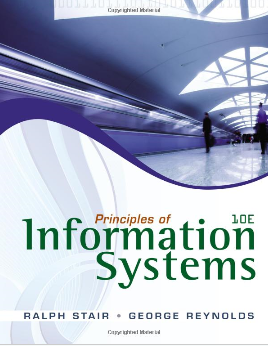 Professor Kristina Setzekorn Course Description This course provides students with a foundation in the concepts and paradigms that shape information technology today. Students will distinguish between current competing ideologies to expand their technological knowledge and make informed business decisions. A focus will be placed on internet technologies, hardware and software components, and networked environments, as well as ethical and social issues in information technology. Students will also be introduced to the MSIT learning team model which will be built upon throughout the program. My Work

Δ 14th Term September 18th, 2013 Δ LI499: Bachelor's Capstone in Liberal Studies (5 Credits) 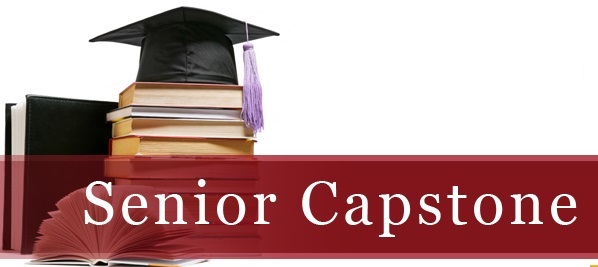 Professor Debra Elliott Course Description Typically the curriculum of a Liberal Studies program strives to provide exposure to a variety of valued content areas to achieve balance in the the arts, humanities, sciences, literature, etc. In addition, during the course of study, students are expected to develop their intellectual critical thinking skills in analysis, logic, and evaluation as well as hone their communication and research skills. The Liberal Studies program derives its roots from the Classical Era where every free man was expected to develop intellectual abilities and enough general content knowledge in order to effectively participate in a democracy and contribute rational, informed opinions. While the goal of other programs of study may be to provide intensive specialization in technical, professional or vocational fields, the Liberal Studies program provides exposure to a range of content for the purpose of developing into a well-rounded individual. With his/her diverse background, the Liberal Studies graduate will be able to apply this understanding to a variety of fields, developing an appreciation for lifelong learning, an ability to utilize critical thinking, ethical reasoning, research, and communication skills to solve problems in a variety of contexts, all the while seeing the relevance and application of core content knowledge to solve problems and appreciate diversity. Δ Discussions - (click on unit to see content) Unit01 Unit02 Unit03 Unit04 Unit05 Unit06 Unit07 Unit08 Unit09 Unit10 Δ Assignments - (click on unit to see content) Unit01 Unit02 Unit03 Unit04 Unit05 Unit06 Unit07 Unit08 Unit09 Unit10 Δ SS260: Gender & Society (5 Credits) 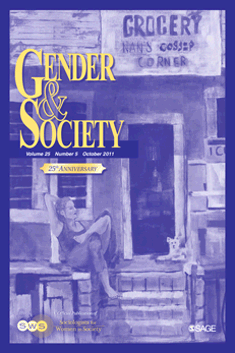 Professor Brenda Beach Course Description This interdisciplinary course will explore the ways that the expectations of men and women in societies today have been shaped by history, culture, and globalization processes. We will examine how gender affects our perception of ourselves and the ways that we are viewed by society over the life course. This course will help students understand the roles and contributions of women and men in the arenas of family, work, politics, education, and the liberal arts. Δ Discussions - (click on unit to see content) Unit01 Unit02 Unit03 Unit04 Unit05 Unit06 Unit07 Unit08 Unit09 Unit10 Δ Assignments - (click on unit to see content) Unit01 Unit02 Unit03 Unit04 Unit05 Unit06 Unit07 Unit08 Unit09 Unit10 Δ 13th Term July 3rd, 2013 Δ SC435-03: Genetics (6 Credits) 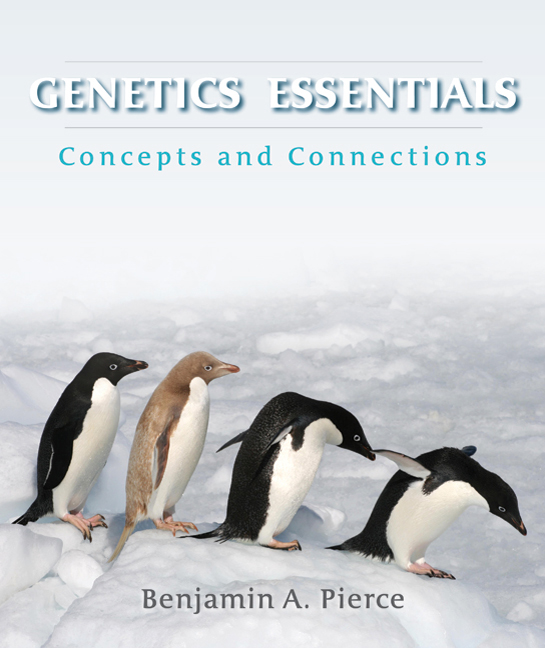 Professor Kirk Williams Course Description This course explores the molecular basis of genetics as applied to human health including developmental genetics, immunogenetics, and cancer genetics. Using case studies, students learn the role of dominant and recessive genes in various diseases and the importance of genetic counseling. In addition, students will discuss gene-mapping methodologies and ethical issues in the context of clinical genetics. Chapters Chapter 1: Introduction to Genetics Chapter 2: Chromosomes and Cellular Respirations Chapter 3: Basic Principles of Heredity Chapter 4: Extensions and Modifications of the Basic Principles Chapter 5: Linkage, Recombination, and Eukaryotic Gene Mapping Chapter 6: Bacterial and Viral Genetic Systems Chapter 7: Chromosome Variation Chapter 8: DNA: The Chemical Nature of the Gene Chapter 9: DNA Replication and Recombination Chapter 10: From DNA to Proteins: Transcription and RNA Processing Chapter 11: From DNA to Proteins: Translation Chapter 12: Control of Gene Expression Chapter 13: Gene Mutations, Transposable Elements, and DNA Chapter 14: Molecular Genetic Analysis, Biotechnology, and Genomics Chapter 15: Cancer Genetics Chapter 16: Quantitative Genetics Chapter 17: Population and Evolutionary Genetics Δ Discussions Unit01 Unit02 Unit03 Unit04 Unit05 Unit06 Unit07 Unit08 Unit09 Unit10 Δ Assignments Unit01 Unit02 Unit03 Unit04 Unit05 Unit06 Unit07 Unit08 Unit09 Unit10 Δ SS368: Social Perspectives on Death and Dying (Honors) (6 Credits) 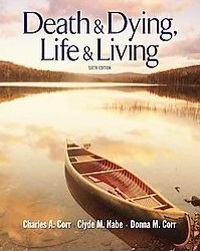 Professor Zachary Funk Course Description This course is designed to provide students with an introduction to the cultural dimensions of death and dying. This topic affects each of us because of our own mortality and our relationships with others who die, whether close to us or complete strangers. The primary goals of the course are to help students deepen their understanding of the cultural dimensions of death and dying and to enable them to become a more effective provider of support. Chapters Prologue: The Horse on the Dining-Room Table. Part One: LEARNING ABOUT DEATH, DYING, AND BEREAVEMENT. 1. Education About Death, Dying, and Bereavement. Part Two: DEATH. 2. Changing Encounters with Death. 3. Changing Attitudes toward Death. 4. Death--Related Practices and the American Death System. 5. Cultural Differences and Death. Part Three: DYING. 6. Coping with Dying. 7. Coping with Dying: How Individuals Can Help. 8. Coping with Dying: How Communities Can Help. Part Four: BEREAVEMENT. 9. Coping with Loss and Grief. 10. Coping with Loss and Grief: How Individuals Can Help. 11. Coping with Loss and Grief: Funeral Practices and Other Ways Communities Can Help. Part Five: DEVELOPMENTAL PERSPECTIVES. 12. Children. 13. Adolescents. 14. Adults. 15. The Elderly. Part Six: LEGAL, CONCEPTUAL, AND MORAL ISSUES. 16. Legal Issues. 17. Suicide and Life-Threatening Behavior. 18. Assisted Suicide and Euthanasia: Intentionally Ending a Human Life. 19. The Meaning of Place of Death in Life. Part Seven: NEW CHALLENGES AND OPPORTUNITIES. 20. HIV Infection and AIDS. Epilogue: Calendar Date Gives Mom Reason to Contemplate Life. Appendix A: Selected Literature for Children: Annotated Descriptions. - See more at: http://www.cengage.com/search/productOverview.do?N=0&Ntk=P_Isbn13&Ntt=9780495506461#TableofContents Δ Discussions Unit01 Unit02 Unit03 Unit04 Unit05 Unit06 Unit07 Unit08 Unit09 Unit10 Δ Assignments Unit01 Unit02 Unit03 Unit04 Unit05 Unit06 Unit07 Unit08 Unit09 Unit10 Δ 12th Term April 17th, 2013 Δ BU224-01: Microeconomics (5 Credits) 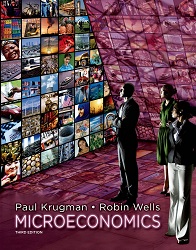 Professor Tilahun Ayanou Course Description This course is an introduction to the principles of microeconomics, which introduces students to the study of the allocation of scarce resources by individual economic actors (consumers and firms) in a market economy. Students will examine the role of markets (supply and demand) in determining prices, consumer and household behavior, and the application of the cost function of a firm in different market structures to maximize profits. Particular attention will be given to integrating economic principles with the study of "real-world" problems. Chapters 1 First Principles 2 Economic Models: Trade-offs and Trade 3 Supply and Demand 4 Consumer and Producer Surplus 5 Price Controls and Quotas: Meddling with Markets 6 Elasticity 7 Taxes 8 International Trade 9 Making Decisions 10 The Rational Consumer 11 Behind the Supply Curve: Inputs and Costs 12 Perfect Competition and the Supply Curve 13 Monopoly 14 Oligopoly 15 Monopolistic Competition and Product Differentiation 16 Externalities 17 Public Goods and Common Resources 18 The Economics of the Welfare State 19 Factor Markets and the Distribution of Income 20 Uncertainty, Risk, and Private Information Δ Discussions Unit01 Unit02 Unit03 Unit04 Unit05 Unit06 Unit07 Unit08 Unit09 Unit10 Δ Assignments Unit01 Unit02 Unit03 Unit04 Unit05 Unit06 Unit07 Unit08 Unit09 Unit10 Δ PS380-01: Clinical Psychology1 Political Science (6 Credits) 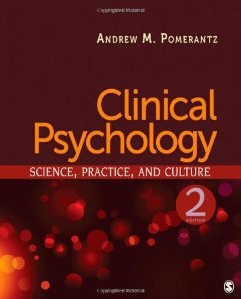 Professor Sara Barnett Course Description This course explores the foundations of clinical psychology, including the history, practice and application of psychology in clinical settings. Students will examine ethical and legal considerations in counseling, the roles and responsibilities of therapist and client, clinical skills, diversity issues, and professional development and opportunities. Current topics related to clinical practice will also be covered. Chapters Clinical Psychology: Definition and Training Evolution of Clinical Psychology Current Controversies in Clinical Psychology Cultural Issues in Clinical Psychology Ethical Issues in Clinical Psychology Conducting Research in Clinical Psychology Diagnosis and Classification Issues The Clinical Interview Intellectual and Neuropsychological Assessment Personality Assessment and Behavioral Assessment General Issues in Psychotherapy Psychodynamic Psychotherapy Humanistic Psychotherapy Behavioral Psychotherapy Cognitive Psychotherapy Group and Family Therapy Clinical Child and Adolescent Psychology Health Psychology Forensic Psychology Δ Discussions Unit01 Unit02 Unit03 Unit04 Unit05 Unit06 Unit07 Unit08 Unit09 Unit10 Δ Assignments Unit01 Unit02 Unit03 Unit04 Unit05 Unit06 Unit07 Unit08 Unit09 Unit10 Δ 11th Term January 30th, 2013 Δ PO101-01 Political Science (5 Credits) 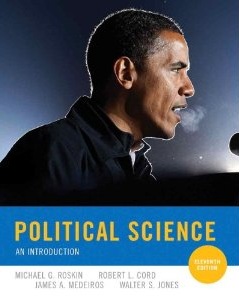 Professor Scott Boykin Course Description This course introduces students to the basic concepts and ideas of Political Science in the areas of political theory, governmental institutions, political economy, and comparative politics. The course examines the unique interdisciplinary nature of Political Science among the social sciences. Particular emphasis is placed on the history of political thought and its influence on contemporary political ideologies; different types of political systems; and the roles of various political actors, both within those systems and in global context. Chapters PART I. THE BASES OF POLITICS Chapter 1. Politics and Political Science Chapter 2. Theories Chapter 3. Ideologies Chapter 4. States Chapter 5. Constitutions Chapter 6. Regimes PART II. POLITICAL ATTITUDES Chapter 7. Political Culture Chapter 8. Public Opinion PART III. POLITICAL INTERACTIONS Chapter 9. Political Communication Chapter 10. Interest Groups Chapter 11. Parties Chapter 12. Elections PART IV. POLITICAL INSTITUTIONS Chapter 13. Legislatures Chapter 14. Executives and Bureaucracies Chapter 15. Judiciaries PART VI. WHAT POLITICAL SYSTEMS DO Chapter 16. Political Economy Chapter 17. Political Violence Chapter 18. International Relations Δ Discussions Unit01 Unit02 Unit03 Unit04 Unit05 Unit06 Unit07 Unit08 Unit09 Unit10 Δ Assignments Unit01 Unit02 Unit03 Unit04 Unit05 Unit06 Unit07 Unit08 Unit09 Unit10 Δ PS300-01 Research Methods (6 Credits) 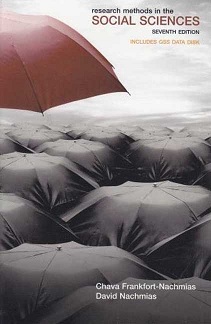 Professor Kimberly Maring Course Description This course provides learners with a basic understanding of the scientific method and how it applies to the field of psychology. It addresses the research methods used in psychology and the strengths and weaknesses of each approach. It also teaches learners when it is appropriate to use one method over the other and how to evaluate the accuracy of the conclusions of a study. Finally, it addresses the ethical issues related to conducting research in psychology. Chapters Part I. Foundations of Empirical Research 1. The Scientific Approach 2. Conceptual Foundations of Research 3. Basic Elements of Research 4. Ethics in Social Science Research Part II. Design and Structure of Research 5. Research Designs: Experiments 6. Research Designs: Cross-Sectional and Quasi-Experimental Designs 7. Measurement 8. Sampling and Sampling Designs Part III. Data Collection 9. Observational Methods 10. Survey Research 11. Questionnaire Construction 12. Qualitative Research 13. Secondary Data Analysis and Sources Part IV. Data Processing and Analysis 14. Data Preparation and Analysis 15. The Univariate Distribution 16. Bivariate Analysis 17. Control, Elaboration, and Multivariate Analysis 18. Index Construction and Scaling Methods 19. Inferences Δ Discussions Unit01 Unit02 Unit03 Unit04 Unit05 Unit06 Unit07 Unit08 Unit09 Unit10 Δ Assignments Unit01 Unit02 Unit03 Unit04 Unit05 Unit06 Unit07 Unit08 Unit09 Unit10 Δ 10th Term November 7th, 2012 Δ SS360 01 American Women (5 Credits) 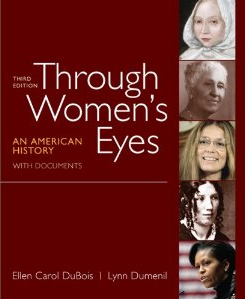
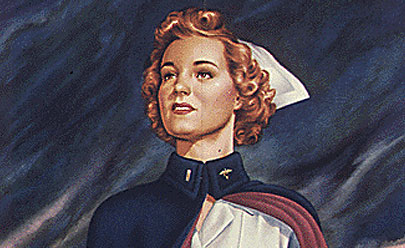 click to see WWII Nurse booklet cover pic1 pic2 pic3 pic4 pic5 pic6 pic7 pic8 Professor Jennifer Harrison Course Description This course examines how gender shapes the experience of women in their social, political, and professional roles. The exploration includes the impact of class, religion, race, and ethnicity on gender roles and expectations for women from colonial times through the present day. Additionally, students will explore the cultural influence of women throughout American history including contributions of women to philosophy, literature, and art. Throughout the course, students will investigate themes of continuity and change in the lives of American women. Chapters Unit 01 A New World for Women Unit 02 Women in the West: American Migration Unit 03 Suffrage and Emergence of the Women's Movement Unit 04 Labor and Immigration: Women's Work and Immigrant Culture Unit 05 Women and Activism: Public Life, Politics, and Change Unit 06 A Modern Woman Emerging: Gender, Race, and Sexuality Unit 07 Civil Rights: Gender, Race, and Sexuality Redefined Unit 08 The Modern Woman and Social Change Unit 09 Pop Culture: Women's Voices Unit 10 Moving Forward Other Resources http://www.nps.gov/history/-history/online_books/5views/5views5e.htm http://www.pbs.org/itvs/alcatrazisnotanisland/alcatraz.html http://memory.loc.gov/ammem/aaohtml/exhibit/aopart9.html http://www.nwhm.org/online-exhibits/-progressiveera/africanamericanreform.html http://www.unr.edu/nwhp/bios/women/winnemucca.htm http://memory.loc.gov/ammem/today/oct14.html http://voices.cla.umn.edu/artistpages/hopkinsSarah.php http://www.nlm.nih.gov/changingthe-faceofmedicine/physicians/biography_253.html http://historymatters.gmu.edu/d/5794/ http://www.pbs.org/wgbh/amex/weshall-remain/the_films/episode_1_trailer http://theautry.org/explore/exhibits/sod/ http://www.pbs.org/wnet/frontierhouse/-frontierlife/essay5.html http://www.pbs.org/wgbh/american-experience/films/triangle/player/ http://www.loc.gov/teachers/-classroommaterials/presentationsand-activities/presentations/immigration/-alt/italian6.html http://www.pbs.org/wgbh/amex-/chicago/peopleevents/p_addams.html http://www.archives.gov/press/press-releases/2011/nr11-79.html http://www.pbs.org/wgbh/amex/-wilson/peopleevents/p_paul.html http://www.pbs.org/wgbh/amex/pill/index.html http://www.youtube.com/watch?v=aDPm67rZ2Co http://www.nps.gov/history/-history/online_books/5views/5views5e.htm http://www.pbs.org/itvs/alcatrazisnotanisland/alcatraz.html http://memory.loc.gov/ammem/aaohtml/exhibit/aopart9.html http://www.nwhm.org/online-exhibits/-progressiveera/africanamericanreform.html Δ Discussions - (click on unit to see content) Unit01 Unit02 Unit03 Unit04 Unit05 Unit06 Unit07 Unit08 Unit09 Unit10 Δ Assignments - (click on unit to see content) Unit01 Unit02 Unit03 Unit04 Unit05 Unit06 Unit07 Unit08 Unit09 Unit10 Δ 9th Term August 22nd, 2012 Δ IT133-02: Software Applications (5 Credits) 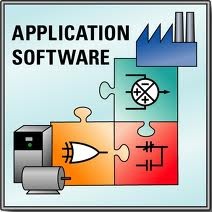


Professor Risa Blair Course Description This course teaches students to use application software. Topics include an introduction to the Windows operating system and to Microsoft Office applications such as Word, Excel and PowerPoint. Students also learn how to apply the use of software applications within a profession. Chapters Unit 1: Introduction to Windows and File Management Unit 2: Introduction to Microsoft Word 2010 Unit 3: Editing and formatting a document Unit 4: Adding tables and graphics Unit 5: Introduction to Excel Unit 6: Exploring Formulas and Functions Unit 7: Charts, Graphs, Pivot Tables Unit 8: Introduction to PowerPoint 2010 Δ Discussions - (click on unit to see content) Unit01 Unit02 Unit03 Unit04 Unit05 Unit06 Unit07 Unit08 Unit09 Unit10 Δ Assignments - (click on unit to see content) Unit01 Unit02 Unit03 Unit04 Unit05 Unit06 Unit07 Unit08 Unit09 Unit10 Δ 8th Term June 6th, 2012 Δ BU204-02: Macroeconomics (5 Credits) 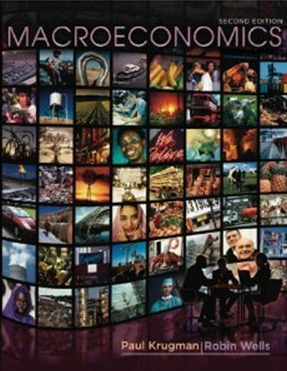
 Professor Rodolfo Biasca Personal Website http://www.biasca.biz Course Description This course is an introduction to the principles of macroeconomics. Students will analyze the purpose and functions of national income accounting, the components of Gross Domestic Product, the determinants of long run economic growth, and the causes and costs of inflation and unemployment. Students will be introduced to money, banking, and financial institutions. In addition, this course will cover the economic impacts of fiscal and monetary policies and the differences between short run (Keynesian) and long run (Classical) macroeconomic aspects of the economy. Particular attention will be given to integrating economic principles with the study of "real-world" problems. Chapters Unit 1: First Principles Unit 2: Economic Models: Tradeoffs and Trade Unit 3: Supply and Demand & The Market Strikes Back Unit 4: Macroeconomics: The Big Picture & Tracking the Macroeconomy Unit 5: Long-run Economic Growth & Savings, Investment, Spending, and the Financial System Unit 6: Aggregate Supply and Aggregate Demand Unit 7: Fiscal Policy Unit 8: Money, Banking, and the Federal Reserve System & Monetary Policy Unit 9: Labor Markets, Unemployment, and Inflation & Inflation, Disinflation, and Deflation Unit 10: Reflection Δ Discussions - (click on unit to see content) Unit01 Unit02 Unit03 Unit04 Unit05 Unit06 Unit07 Unit08 Unit09 Unit10 Δ Assignments - (click on unit to see content) Unit01 Unit02 Unit03 Unit04 Unit05 Unit06 Unit07 Unit08 Unit09 Unit10 Δ 7th Term March 21st, 2012 Δ MM207-02: Statistics (5 Credits) 
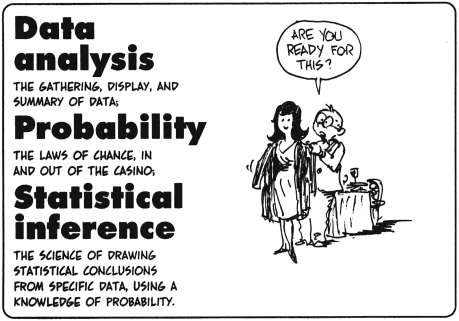 Professor Eric Thomas Course Description An introduction to collecting, organizing and summarizing, and analyzing data using statistical software. Topics include basic terminology, measurement, sampling procedures, graphical and numerical descriptions of data, basic probability, and making inferences from a sample to the population. Statistical software is provided in the course and extensive use of that software is required. The course focuses on thinking with statistics rather than calculating statistics. Chapters Ch. 0: Orientation Questions for Students Ch. 1: Speaking of Statistics Ch. 2: Measurement in Statistics Ch. 3: Visual Displays of Data Ch. 4: Describing Data Ch. 5: A Normal World Ch. 6: Probability in Statistics Ch. 7: Correlation and Causality Ch. 8: From Samples to Populations Ch. 9: Hypothesis Testing Ch. 10: t Tests, Two-Way Tables, and ANOVA Ch. GR: Getting Ready for Statistics (Online Only) Δ Discussions - (click on unit to see content) Unit01 Unit02 Unit03 Unit04 Unit05 Unit06 Unit07 Unit08 Unit09 Unit10 Δ Assignments - (click on unit to see content) Unit01 Unit02 Unit03 Unit04 Unit05 Unit06 Unit07 Unit08 Unit09 Unit10 Δ CM310: Communication & Conflict (6 Credits) 
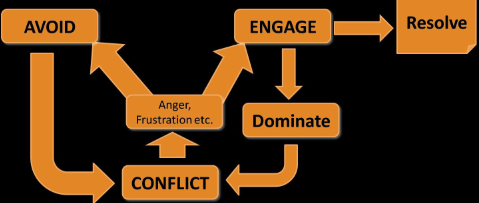 Professor Will Hughes Course Description This course focuses on the nature of communication and conflict in interpersonal and organizational contexts. Students learn to apply theories of conflict and conflict resolution with an emphasis on ways to manage conflict in order to create more productive and satisfying interpersonal and professional relationships. Chapters Chapter 1 The Nature of Conflict 2 Chapter 2 Perspectives on Conflict 35 Chapter 3 Interests and Goals 70 Chapter 4 Power: The Structure of Conflict 103 Chapter 5 Styles and Tactics 144 Chapter 6 Emotions in Conflict 194 Chapter 7 Mapping Your Conflicts 218 Chapter 8 Interpersonal Negotiation 244 Chapter 9 Third-Party Intervention 271 Chapter 10 Forgiveness and Reconciliation 296 Δ Discussions - (click on unit to see content) Unit01 Unit02 Unit03 Unit04 Unit05 Unit06 Unit07 Unit08 Unit09 Unit10 Δ Assignments - (click on unit to see content) Unit01 Unit02 Unit03 Unit04 Unit05 Unit06 Unit07 Unit08 Unit09 Unit10 Δ 6th Term January 4th, 2012 Δ SC300: Big Ideas in Science: From Methods to Mutation (6 Credits) 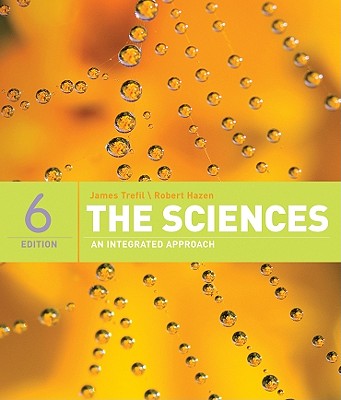

 Professor Christin Morgan Course Description This unique course is designed to introduce students to some of the most important concepts in science, including inheritance, energy, randomness, and measurement. In addition, the class will give students a chance to explore the human aspects of science: how people put science into practice, how societies think about scientific findings, and why science depends on ethical practices. Knowledge gained in the course will help inform further study in many disciplines and will help students better understand how science affects their personal and professional lives. Chapters 1. Science: A Way of Knowing: How do you know what you know? 2. The Ordered Universe: Why do planets appear to wander slowly across the sky? 3. Energy: Why must animals eat to stay alive? 4. Heat and the Second Law of Thermodynamics: Why is it easier to make an omelet from an egg than to make an egg from an omelet? 5. Electricity and Magnetism: What is lightning? 6. Waves and Electromagnetic Radiation: What is color? 7. Albert Einstein and the Theory of Relativity: Can a human ever travel faster than the speed of light, at "warp speed"? 8. The Atom: Why are there so many different materials in the world? 9. Quantum Mechanics: How can the electron behave like both a particle and a wave? 10. Atoms in Combination: The Chemical Bond: How does blood clot? 11. Materials and Their Properties: How have computers gotten so much faster? 12. The Nucleus of the Atom: How do scientists determine the age of the oldest human fossils? 13. The Ultimate Structure of Matter: How can antimatter be used to probe the human brain? 14. The Stars: How much longer can the Sun sustain life on Earth? 15. Cosmology: Will the universe end? 16. Earth and Other Planets: Is Earth the only planet with life? 17. Plate Tectonics: Can we predict destructive earthquakes? 18. Earth's Many Cycles: Will we ever run out of fresh water? 19. Ecology, Ecosystems, and the Environment: Are human activities affecting the global environment? 20. Strategies of Life: What is life? 21. The Living Cell: What is the smallest living thing? 22. Molecules of Life: What constitutes a healthy diet? 23. Classical and Modern Genetics: Why do offspring resemble their parents? 24. The New Science of Life: Can we cure cancer? 25. Evolution: How did life emerge on the ancient Earth? Δ Discussions - (click on unit to see content) Unit01 Unit02 Unit03 Unit04 Unit05 Unit06 Unit07 Unit08 Unit09 Unit10 Δ Assignments - (click on unit to see content) Unit01 Unit02 Unit03 Unit04 Unit05 Unit06 Unit07 Unit08 Unit09 Unit10 Δ 5th Term October 19th, 2011 Δ SS310 Exploring the 1960's - Interdisciplinary Approach (6 Credits) 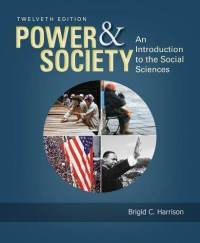
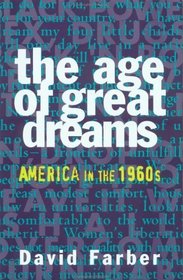
 Professor Nicole Braun/Tsiom Motkin Course Description This course will take an in-depth look at the 1960s as a significant era in American history. Adopting multiple perspectives, we will explore the societal impact of such issues as the assassination of John F. Kennedy, the Vietnam War, the Countercultural, Civil Rights and Feminist Movements, the advent of the birth control pill, and many others. Through exploring the music, political climate, and advancements in technology and medicine of this historical era, we will discover how our individual lives and society as a whole were forever changed. Chapters UNIT 1: Setting the Stage UNIT 2: The Cold War and Vietnam UNIT 3: The Camelot Years: UNIT 4: The Civil Rights Movement UNIT 5: The Counter Culture Movement UNIT 6: Gender Movements UNIT 7: Science and Technology UNIT 8: The Face of Government UNIT 9: Loss of Leaders UNIT 10: Wrap Up Δ Discussions - (click on unit to see content) Unit01 Unit02 Unit03 Unit04 Unit05 Unit06 Unit07 Unit08 Unit09 Unit10 Δ Assignments - (click on unit to see content) Unit01 Unit02 Unit03 Unit04 Unit05 Unit06 Unit07 Unit08 Unit09 Unit10 Δ 4th Term August 3rd, 2011 Δ HU300 Art & Humanities (6 Credits) 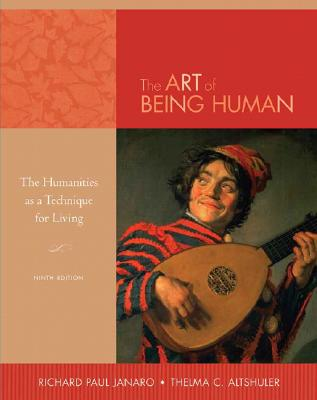
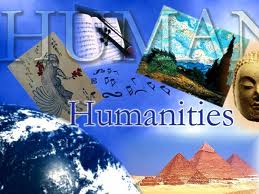
Professor Gabriel Jewell/Penelope Orr Course Description The root of humanities is the study of what it means to be human. In this course, we will talk specifically about types of creative expression and the ways we have interpreted this in the twentieth century and beyond. While the origin of the word humanities may be ancient, the term has everything to do with our own lives. Has anyone told you to stop and smell the roses? The appreciation and awareness of being human is the heart of the humanities, and includes literature, art, music, philosophy, film, and popular culture. So, the next time you are reading a fairy tale to a child, noticing a graffiti-covered wall on your way to work, or even reasoning out what the right thing to do might be, you're actively engaging in the humanities. A study of the humanities can yield direct benefits to your daily life, such as offering a new perspective to develop your understanding, and sparking creative energy that can be a benefit in your career, community, and daily life. In our first unit, well be focusing on understanding the humanities through critical thinking. Chapters 01. The Humanities: Still Vital 02. Profile of the Critical Thinker 03. Myth and the Origin of the Humanities 04. Literature 05. Art 06. Music 07. Theater 08. The Musical Stage: Opera, Music Drama, Dance 09. Cinema 10. Religion 11. Morality 12. Happiness 13. Love 14. Death and Life-Affirmation 15. Controversial Themes and the Humanities 16. Freedom Δ Discussions - (click on unit to see content) Unit01 Unit02 Unit03 Unit04 Unit05 Unit06 Unit07 Unit08 Unit09 Unit10 Δ Assignments - (click on unit to see content) Unit01 Unit02 Unit03 Unit04 Unit05 Unit06 Unit07 Unit08 Unit09 Unit10 Δ 3rd Term May 18th, 2011 Δ HU345 Critical Thinking (6 Credits)  Professor Ronald Davenport Course Description This course helps students apply tools of informal logic and critical thinking to practical situations they encounter in everyday life. Students will learn how to use methods of critical thinking to evaluate arguments, claims, and strategies for constructing sound arguments. They will also learn how to identify and respond to faulty or manipulative reasoning in their own thinking and arguments and in the thinking and arguments of others. In addition, students will assess the reasoning found in mass media (such as websites, advertisements, and newspapers). Finally, students will apply the concepts they study to real-world issues of personal and professional significance. Chapters CHAPTER 01 Communication and Persuasion: Logos, Pathos, Ethos CHAPTER 02 Arguments and Controversies CHAPTER 03 Strategies of Argumentation CHAPTER 04 Problems in Reasoning CHAPTER 05 Visual Arguments CHAPTER 06 Critical Thinking about Poetry, Fiction, and Literary Nonfiction CHAPTER 07 Library Strategies CHAPTER 08 Evaluating Evidence CHAPTER 09 Documentation CHAPTER 10 Writing Your Research Paper A CONCISE HANDBOOK ON GRAMMAR, MECHANICS, AND USAGE Δ Discussions - (click on unit to see content) Unit01 Unit02 Unit03 Unit04 Unit05 Unit06 Unit07 Unit08 Unit09 Unit10 Δ Assignments - (click on unit to see content) Unit01 Unit02 Unit03 Unit04 Unit05 Unit06 Unit07 Unit08 Unit09 Unit10 Δ 2nd Term March 2nd, 2011 Δ HU245-04: Ethics (5 Credits) 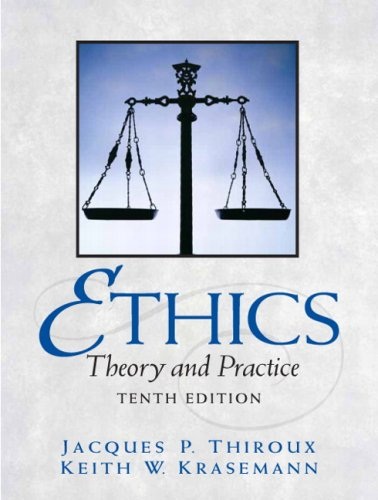
 Professor Jerett Vincent Course Description In this course, students develop sound ethical reasoning and judgment through the study of practical applications of ethical theories. Topics studied include ethics as it relates to business, health care, society, and the environment. Emphasis is on practical applications of ethical principles and analytical methods. Chapters Chapter 1. The Nature of Morality, 1 Chapter 2. Consequentialist (Teleological) Theories of Morality, 34 Chapter 3. Nonconsequentialist (Deontological) Theories of Morality, 53 Chapter 4. Virtue Ethics, 70 Chapter 5. Absolutism Versus Relativism, 88 Chapter 6. Freedom Versus Determinism, 103 Chapter 7. Reward and Punishment, 120 Chapter 8. Setting Up a Moral System: Basic Assumptions and Basic Principles, 156 Chapter 9. The Taking of Human Life, 181 Chapter 10. Allowing Someone to Die, Mercy Death, and Mercy Killing, 207 Chapter 11. Abortion, 253 Chapter 12. Lying, Cheating, Breaking Promises, and Stealing, 275 Chapter 13. Morality, Marriage, and Human Sexuality, 304 Chapter 14. Bioethics Ethical Issues in Medicine, 332 Chapter 15. Business and Media Ethics, 361 Chapter 16. Environmental Ethics, 394 Δ Discussions - (click on unit to see content) Unit01 Unit02 Unit03 Unit04 Unit05 Unit06 Unit07 Unit08 Unit09 Unit10 Δ Assignments - (click on unit to see content) Unit01 Unit02 Unit03 Unit04 Unit05 Unit06 Unit07 Unit08 Unit09 Unit10 Δ 1st Term December 8th, 2010 Δ CS123: College Success Strategy for Prof. and Liberal Studies Prof. (5 Credits) 

 Professor Abigail Nhwako Course Description Designed to facilitate personal and professional success, this course introduces students to the purposes and processes of university education. An emphasis is placed on study, communication and thinking skills that support academic achievement. Students also examine the relationship between learning and motivation. Target Audience All Recommended Background None. Prerequisites None. Δ Discussions - (click on unit to see content) Unit01 Unit02 Unit03 Unit04 Unit05 Unit06 Unit07 Unit08 Unit09 Unit10 Δ Assignments - (click on unit to see content) Unit01 Unit02 Unit03 Unit04 Unit05 Unit06 Unit07 Unit08 Unit09 Unit10 Δ SC115: Principles of Nutrition (5 Credits) 
 Professor Stacie Kisver see ratings Course Description This is an introductory level course in which students investigate the fundamental concepts of nutrition: food sources; nutrient function; digestion; absorption; and metabolism. Special attention is given to learning to apply nutritional principles to food choices in a way that encourages a health lifestyle. Students will learn how nutritional needs change from infancy through adulthood, including pregnancy and the senior stages of life.This is an introductory level course in which students investigate the fundamental concepts of nutrition: food sources; nutrient function; digestion; absorption; and metabolism. Special attention is given to learning to apply nutritional principles to food choices in a way that encourages a health lifestyle. Students will learn how nutritional needs change from infancy through adulthood, including pregnancy and the senior stages of life. Course Objective By the end of this course, you should be able to: Describe the role of nutrition in a healthy lifestyle and disease prevention. Explain how nutrients are processed and used in the human body. Apply nutritional principles to food choices. Evaluate nutritional needs at various stages of the life cycle. Chapters 1. The Role of Nutrition in Our Health 2. Designing a Healthful Diet 3. The Human Body: Are We Really What We Eat? 4. Carbohydrates: Plant-Derived Energy Nutrients In Depth: Alcohol 5. Fat: An Essential Energy-Supplying Nutrient 6. Proteins: Crucial Components of All Body Tissues In Depth: Vitamins and Minerals: Micronutrients with Macro Powers 7. Nutrients Involved in Fluid and Electrolyte Balance 8. Nutrients Involved in Antioxidant Function In Depth: Phytochemicals and Functional Foods 9. Nutrients Involved in Bone Health 10. Nutrients Involved in Energy Metabolism and Blood Health 11. Achieving and Maintaining a Healthful Body Weight 12. Nutrition and Physical Activity: Keys to Good Health 13. Disordered Eating 14. Food Safety: Impact on Consumers 15. Nutrition Through the Lifecycle: Pregnancy and the First Year of Life 16. Nutrition Through the Lifecycle: Childhood to Late Adulthood In Depth: Global Nutrition Δ Discussions - (click on unit to see content) Unit01 Unit02 Unit03 Unit04 Unit05 Unit06 Unit07 Unit08 Unit09 Unit10 Δ Assignments - (click on unit to see content) Unit01 Unit02 Unit03 Unit04 Unit05 Unit06 Unit07 Unit08 Unit09 Unit10 Δ Extracurricular Work These are academic studies that I have participated in outside of my normal university curriculum; these studies are more like audited courses.
Δ Other Classes Taken 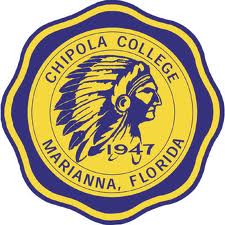 Δ Credited Classes PS124 5 General Psychology ENC1101 English MAC1102 College Algebra ENC1102 Literature CLP2100 Abnormal Psychology DEP2102 Child Psychology AMH2101 AM Hist to 1865 SYG1410 Marriage/Family Relations PEL1111 Bowling I PEL1112 Bowling II MVK1111 Piano MVK1211 Piano SPN1120 Spanish I BSC1010L General Biology - Lab CGS1560 DOS I CGS1561 DOS II Δ Non-Transferable Classes CIS1000 Intro to Computer Science CS C++ CS Fortran CS PASCAL MAC Trigonometry CS dBASE CS Lotus 1,2,3 CS Visual Basic 2.0 SPN1121 Spanish II |
I'm a Computer
Systems Engineer
Living and loving life
........................................
Author
...

College Resources
Writing
Graduate Writing
Graduate Essays
Graduate Essay Tips
Graduate Essay Samples
Graduate Admission Ess.
Yale College Writing
Harvard Writing Center
Berkeley College Writing
Hamilton Writing Center
Purdue Online Writing Lab
Examples of Grammar
Reference
Dictionary.com
Thesaurus.com
Mirriam-Webster
Atlas - infoplease
Online Calculator
Math Videos
Free Education
Yale Course List
UCIrvine Open Courses
Notre Dame
MIT Course List
Princeton Course List
Berkeley Course List
Best Courses Coursera List
We Are Many
Free Video Lectures
Openculture Course List
Udemy
Blogs
Talk nerdy to me
Wish You Worked Here
The College Crush
Campus Splash
Hack College
College Parents - America
The Daily Mu.se
Comm. College Success
I Am Intern
The College Prepster
Big Girls Sm. Kitchen-College
The Real College Guide
College Candy
MBA Social
College Info Geek
The Campus Commons
College Magazine
College Cures
Next Gen Journal
College Prowler
FindTheBest Blog
Campus Grotto
Student Renter
CheapScholar
Surviving College
Corporate Casual
Other
Rate my Professors
